Afghanistan War, Civil Liberties, FBI Intrusion, Guantanamo, Habeas Corpus, Human Rights, Iraq War, Military Tribunal, Surveillance, Targeting Muslims, Torture, Truth to Power
Podcast: Play in new window | Download
WBAI Listeners Click Here For June 1, Rundown
Torture And The Need For Justice – Wednesday June 3, at the New York Society For Ethical Culture.
Updates:
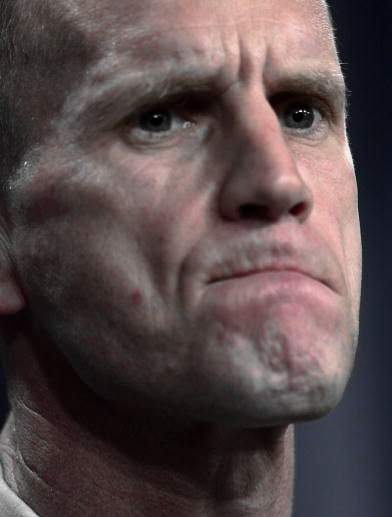
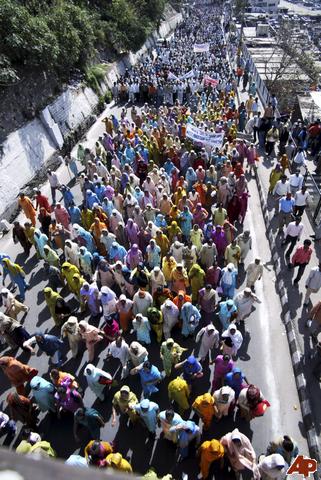
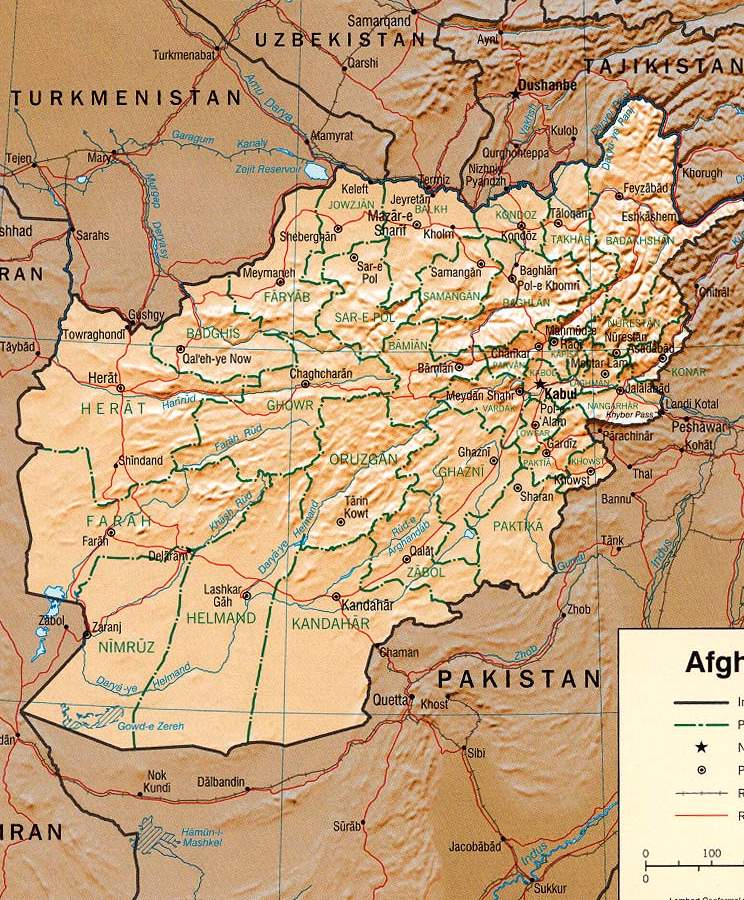
Obama’s Animal Farm: Bigger, Bloodier Wars Equal Peace and Justice
Here on Law and Disorder we recently talked with several guests on the escalation of war in Afghanistan under the Obama Administration. Last week Obama appointed General Stanley McChrystal to head the US and NATO military command in Afghanistan, – another decision revealing how Obama has restored the most notorious Bush era policies according to James Petra, a former Professor of Sociology at Binghamton University, New York. In his article titled Obama’s Animal Farm: Bigger, Bloodier Wars, Petra outlines how McChrystal’s past brutal leadership is marked by systematic torture, bombing of civilian communities and extrajudicial assassinations. Between September 2003 and August 2008, Petra writes – McChrystal directed the Pentagon’s Joint Special Operations Command which operates special teams in overseas assassinations. Petra also mentions that McChrystal is one reason why Obama is fighting to prevent the release of graphic photos that document torture by US soldiers and interrogators. Related: Mysterious Chip-CIA’s Latest Weapon Against Taliban.
Jim Petras:
- It’s very clear that Obama wants a bigger and more ferocious counterinsurgency program.
- Obama is also concerned because the entire Pakistan and Afghanistan borders are supporting resistance. Indigenous, anti-colonial forces have taken over.
- He’s going all out now, he’s pressured the puppet president of Pakistan to launch this humanitarian crime against the Pakistani people, creating 2 million Pakistani refugees, destruction and civil war.
- The overall picture that we get is a tremendous boost in militarization. In the last couple of months it’s one attack after another on the Pakistan military.
- McCrystal is gung-ho, he’s a greater asset to destroy the social networks among the resistance. Similar to Vietnam, to go into villages and assassinate local leaders.
- General McCrystal is a proponent of direct action strictly involved in US terrrorist operations. Slitting throats and strangling anyone remotely connected with the armed resistance.
- There was effort to distinguish between civilians and armed resistors. McCrystals approach is to empty the pond to catch the fish. There going in to drive out millions of people in Pakistan to catch a few thousand resistance fighters.
- This is a monstrous humanitarian disaster compared to Rwanda.
- Torture Photos: You can’t publicize the worst activities of the person you appoint to be the head honcho in this phase of the war.
- Navy Seals, Delta Force, Special Operations Command. I was at Ft. Bragg, in a debate with military officers regarding death squads in Central America. These are killing operations, no surrender. The people that go into it are psycopaths.
- That Obama appointed McCrystal to this position builds bridges back to the worst part of the Bush Administration. Obama has accepted the general paradigm of the past presidents, he has a vision of military empire building, rather than realizing that much more power is achieved in economic expansion and investment.
- The US thought they could do both, economic and military empire building, but with the loss of manufacturing and rise of financial businesses there was no counterweight to the military side of empire. American power can only be realized through a massive military commitment.
- This is a war against a people, it’s going to be a long dirty war. It’s already shaping up. It’s a cost for big oil and manufacturing, rather than a benefit.
Guest – James Petras, a former Professor of Sociology at Binghamton University, New York, owns a 50_year membership in the class struggle, is an adviser to the landless and jobless in Brazil and Argentina, and is co_author of Globalization Unmasked (Zed Books). His latest books are The Power of Israel in the United States (Clarity Press, 2006); Rulers and Ruled in the US Empire: Bankers, Zionists, Militants (Clarity Press, 2007) and Zionism, Militarism and the Decline of US Power (Clarity Press 2008)
—

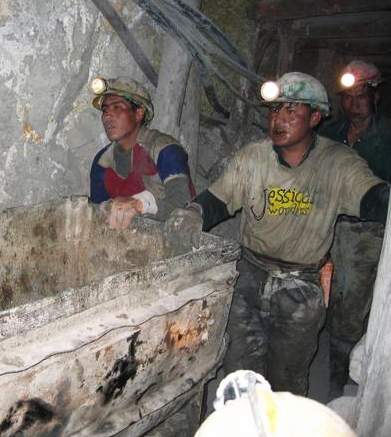
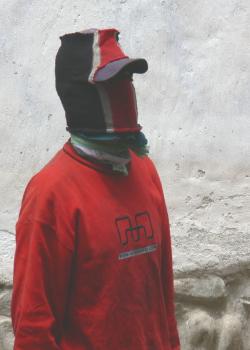
Gringo – A Coming of Age in Latin America
In the book Gringo – A Coming of Age in Latin America, author Chesa Boudin travels through parts of Venezuela, the streets of Guatemala and to protests in Santiago. Boudin’s narrative chronicles nearly a decade of on-the-road experiences in Latin America. He’s captured the transformation in Latin American politics through the voices of the wealthy and the desperately poor.
One review called Gringo, a quote – compelling firsthand account of the unregulated greed, social neglect, and deliberate misrule that has provoked so many Latin Americans to demand a better life for themselves and their children.”
Seymour Hersch says in another review, it’s quote – cheap beer, fried plantains, long dusty bus rides, radical politics, the repeated kindness of desperately poor people sharing what they have with an outsider, and Chesa Boudin’s eagerness to share what he’s seeing and what he’s feeling, with sympathy and empathy __ as he tries to sort it all out. There’s much to learn in this book.”
Chesa Boudin:
- This is a book that weaves together two different threads. One is my own personal journey, my own effort to make sense of my identity, my place in the world as a white, priveledged North American man. But also, in the context of where I was traveling, working and studying in Latin America at a time when the region was experiencing a dramatic political shift to the left.
- I had grown up in a very political family. All 4 of my parents had been very involved in the anti-war movement. Both of my biological parents Kathy Boudin and David Gilbert were incarcerated in New York State maximum security prisons.
- I grew up in two very different worlds, one of prison and one of privelege and opportunity.
- I took public buses mainly, interacted with the poorest and most humble as well as the elite rich.
- I went to Guatemala and from there I went to Chile, which was a classic example of what Naomi Klein writes about in the Shock Doctrine of the US with Pinochet imposing the neo-liberal model on the people.
- I sat for hours and hours in line to change money into pesos, I watched entire families digging through garbage on the street.
- The irony Michael is that I found time and again, the most downtrodden, the most humble, the ones living 17 people in a 2 bed room apartment that took me in. Those were the ones that were the most generous.
- When the political and economic models come out of Washington, it became difficult to fathom what another government approach would look like.
- In Venezuela, I watched the recreation of system based not on shutting people out but rather giving them a stake in the day to day functioning of their government and empowering poor people.
- Instead of having people from another country or economic class come in and tell them what they need to do.
- Venezuela is exciting, its hard to predict what may happen. Ten years into Chavez’s presidency, an opposition opinion poll places him at 60 percent.
- One of the controversies in Venezuela is the constitutional reform of term limits.
- The people voted for this not only for the president but for other offices as well, the New York Times framed it as the downfall of democracy.
- Bolivia has been my favorite country to visit, it’s a beautiful country. Visiting the mines and talking with the miners is something I use as a lens to view the country’s current politics and the political development that led to the election of Evo Morales.
- One thing I’ve noticed in Bolivia is the left has gotten much more experience being critical from the outside then from actually learning to govern from the inside.
Guest – Chesa Boudin – a Rhodes Scholar, is a student at Yale Law School and author of Gringo: A Coming-of-Age in Latin America (Scribner)
—————————————————————————————-
Afghanistan War, Civil Liberties, Guantanamo, Habeas Corpus, Human Rights, Prosecution of the Bush Administration, Surveillance, Targeting Muslims, Torture, Truth to Power
Podcast: Play in new window | Download
Updates
——–

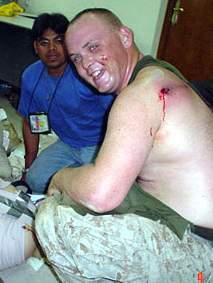
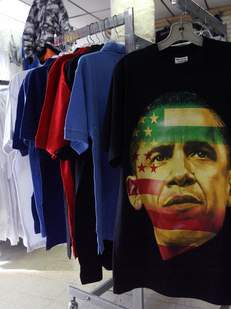
Jeremy Scahill – “Little Known Military Thug Squad Still Brutalizing Prisoners at Gitmo Under Obama”
Author and independent journalist Jeremy Scahill delivers a rare report on the actions of the Immediate Reaction Force’s torture tactics with disturbing detail. While the Obama administration prevents the release of thousands of photos, Scahill describes the graphic imagery of the ongoing torture of prisoners in Guantanamo and in prisons abroad. Teams of men in padded gear enter the cell of a Guantanamo prisoner and are basically assigned body parts to restrain. Rarely heard about in the media, Scahill writes about the multiple accounts of severe beatings delivered by IRF teams that include sustained injuries such as broken noses, blindness and brain damage. In one incident a US soldier was IRF’d during a training exercise, he now suffers seizures up to 10 episodes a day.
Jeremy Scahill:
- The US has a one party system and Obama is showing that very clearly.
- On January 22, Obama said that Guantanamo would be closed in a year.
- Obama is continuing the use of a notorious military police unit at Guantanamo, known as the Immediate Reaction Force.
- They come into a cell, five men deep, they douse the prisoner with chemicals, each thug sent in is assigned a different body part and their job is to subdue restless or combative prisoners.
- This is not about stopping a riot in prison, or keep a prisoner from stabbing a guard. What’s going on is if a prisoner has an extra styro-foam cup in their cell, they are IRF’d.
- They have smeared feces of another prisoner onto the face of a prisoner.
- In one case that CCR has taken, a prisoner was doused with chemicals, beaten and the IRF team members urinate on his head.
- Scott Horton says this force was authorized at the highest levels of the Bush Administration.
- When you don’t prosecute those who set the tone for this torture, you encourage it, not allow it, you encourage it to continue.
- The Democratic Party is a shill for powerful corporations. Harry Reid implied that Guantanamo prisoners should not be moved to the US because they would be a threat to US security.
- The real danger here is to the US Constitution and the reality is that the torture program was bi-partisan.
- Nancy Pelosi’s participation in authorizing the torture program is not a partisan issue, it’s a law enforcement issue with grave implication to the United States and the world.
- Michael Ratner: Looking forward to a future without torture is guaranteed by prosecution, not impunity.
- I actually have people standing up and walking out on speeches, when I was criticizing Obama, a group of students at an American University walked out.
- Name the countries of the world where people walk around with the president’s face on their T-shirts.
- The facade is starting to crack. People are realizing now we are at a critical moment in history to reflect on the one party system that we have.
- Obama has sucked the air out of the social movements that were co-opted by the Democratic Party or willingly folded themselves into the Obama campaign mechanism.
Jeremy Scahill, an independent journalist who reports frequently for the national radio and TV program Democracy Now, has spent extensive time reporting from Iraq and Yugoslavia. He is currently a Puffin Writing fellow at The Nation Institute. Scahill is the author of Blackwater: The Rise of the World’s Most Powerful Mercenary Army. His writing and reporting is available at Rebel Reports.
—-
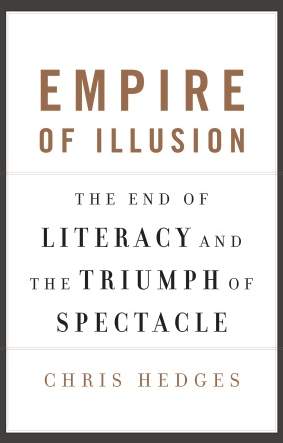

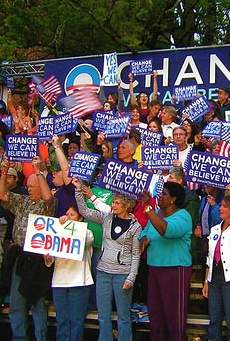
Chris Hedges – Buying Brand Obama
We’ve been duped. The global celebrity status of President Obama has been molded into a brand writes Chris Hedges, former Middle East bureau chief for the New York Times. Obama’s campaign was a marketer’s dream and won the vote of top marketer in Advertising Age magazine. Chris Hedges article, Buying Brand Obama takes a scathing look at how clever marketing diverts public attention away from critical issues such as the expansion of war, Obama’s rejection of single payer healthcare, his refusing to prosecute the Bush administration for war crimes and allowing Bush era surveillance and secrecy laws to remain intact.
Chris Hedges:
- There’s a wild disconnect between what Obama does and what he says that can only be cleverly bridged with illusion. That’s what his PR people do. That 600 million dollars of campaign funding had to go somewhere.
- Listen to the professionals: Obama Wins Ad.Age Marketer of the Year!
- He does one thing and he like any “brand” gets you to believe another.
- This started a while ago, if you remember Benetton ads, they used risque images and progressive politics to give themselves an edge. It is intended to make the passive consumer mistake a brand for an idea or experience.
- He (Obama) didn’t make many promises, it was sloganeering and the confusion of propaganda.
- It’s what Benjamin DeMott calls Junk Politics, in his book Junk Politics. Junk politics is not about demanding justice. It moralizes issues, it doesn’t clarify them. The result: Nothing Changes.
- Obama is a classic example of how re-branding allows for the disintegration of American democracy.
- Obama once again has followed the lead of the Bush Administration. It has spent, lent or guaranteed at this point 12 trillion dollars of tax payer dollars. Handed out to Wall St. and firms like AIG. It’s a bizarre effort to re-inflate a bubble through massive loans.
- This has forestalled catastrophe, but when that catastrophe comes, we’re going to be broke. . . that time will come at a profound crisis.
- The problem is not Obama, the problem is the American Left which forgot it’s place. Politics is a game of pressure and we don’t do that. Look at Moveon.org, it’s become an arm of the Obama campaign.
- I’m re-reading Notes From Underground by Fyodor Dostoevsky, what happens to a bankrupt liberalism which took hold of Russia in the latter part of the 19th century, moral nihilism.
- Allowing Americans to remain in this self delusional belief that everything is going to go back to the way it was and we are always going to be powerful and rich. . . . you’re essentially maintaining a population in a state of childishness. They never grow up because they never face reality.
- Book: Empire of Illusion – Post literate society, unable to discern lies from truth.
Guest – Chris Hedges, author of many books specializing in American and Middle Eastern politics and society. He spent nearly two decades as a foreign correspondent in Central America, the Middle East, Africa and the Balkans. He was also the Middle East bureau chief for The New York Times. Chris Hedges’ new book, “Empire of Illusion: The End of Literacy and the Triumph of Spectacle,” will be out in July and can be preordered at your local bookstore.
—————————————————————————
Civil Liberties, Criminalizing Dissent, Habeas Corpus, Human Rights, Impeachment, Prosecution of the Bush Administration, Supreme Court, Surveillance, Torture, Truth to Power
Podcast: Play in new window | Download
[Law and Disorder Radio: Encore Interviews on Prosecution]
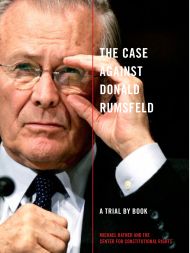
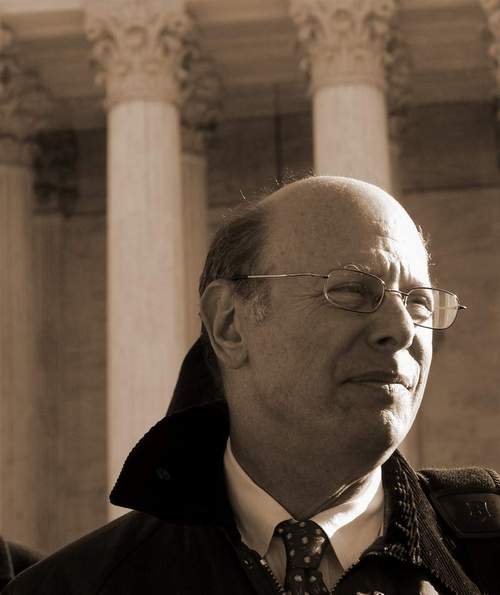
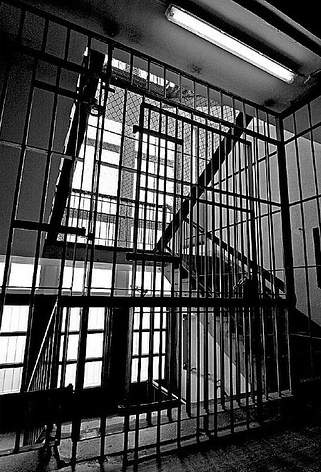
The Trial of Donald Rumsfeld: A Prosecution by Book – Michael Ratner
We are very pleased to talk with our own Michael Ratner, president of the Center for Constitutional Rights about his recent book The Trial of Donald Rumsfeld: A Prosecution by Book. Michael’s book exposes how hundreds of individuals were victims of gruesome crimes inside the secret prisons in Iraq, Afghanistan and Cuba while under International and American law. Michael Ratner not only levels the charge against former US secretary of defense Donald Rumsfeld but lists others to be guilty of the US War Crimes Act of 1996 such as David Addington, George Tenet, Alberto Gonzales, and John Yoo.
The case is presented in shocking detail, it’s a blueprint for prosecuting war criminals and a powerful reference tool for holding the Bush administration’s rogue leadership accountable. One review states that it quote represents a case that a prosecutor could bring against Donald Rumsfeld were he not shielded by dubious immunity doctrines crafted by the Bush administration and the judges it has appointed.
Guest – Michael Ratner – president of the Center for Constitutional Rights and author of many books including, Guantanamo: What the World Should Know. Michael has worked for decades, as a crusader for human rights both at home and abroad litigating many cases against international human rights violators resulting in millions of dollars in judgments for abuse victims and expanding the possibilities of international law. He acted as a principal counsel in the successful suit to close the camp for HIV-positive Haitian refugees on Guantanamo Base, Cuba. Over the years, he has litigated a dozen cases challenging a President’s authority to go to war, without congressional approval. In the wake of the September 11 attacks, the Center has focused its efforts on the constitutionality of indefinite detention and the restrictions on civil liberties as defined by the unfolding terms of a permanent war. Among his many honors are: Trial Lawyer of the Year from the Trial lawyers for Public Justice, The Columbia Law School Public Interest Law Foundation Award, and the North Star Community Frederick Douglass Award.
—–
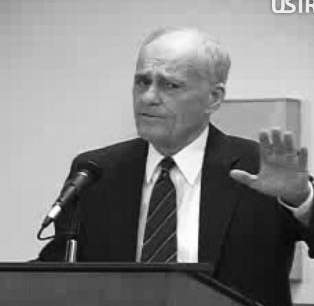
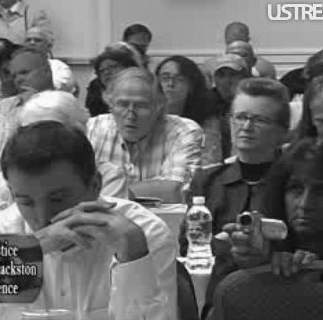
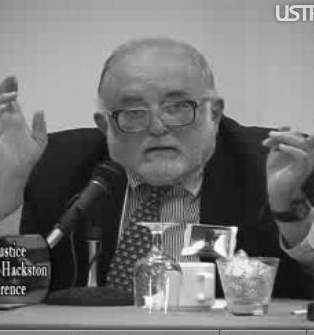
David Swanson: Why We’re Planning to Prosecute Cheney and Bush
In an article published on the website – AfterDowningStreet, author David Swanson lays out another powerful case as to why it is critical to hold leadership accountable for war crimes. He explains that if much needed change is made in the United States such as a transparent electoral process, eliminating secret government and constitutional amendments, it would still not be enough to “chain the dogs of war.” Hosts discuss with David Swanson about why it’s critical to hold a conference to plan the prosecution of Bush and Cheney.
War Crimes Conference Archive
Guest – David Swanson, creator of many media-based websites including MeetWithCindy.org and KatrinaMarch.org, he has worked as a newspaper reporter and as a communications director, with jobs including press secretary for Dennis Kucinich’s 2004 presidential and three years as communications coordinator for ACORN (the Association of Community Organizations for Reform Now)
—-
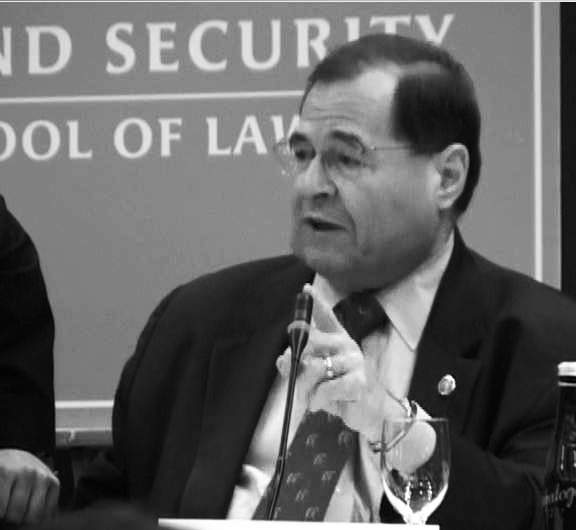
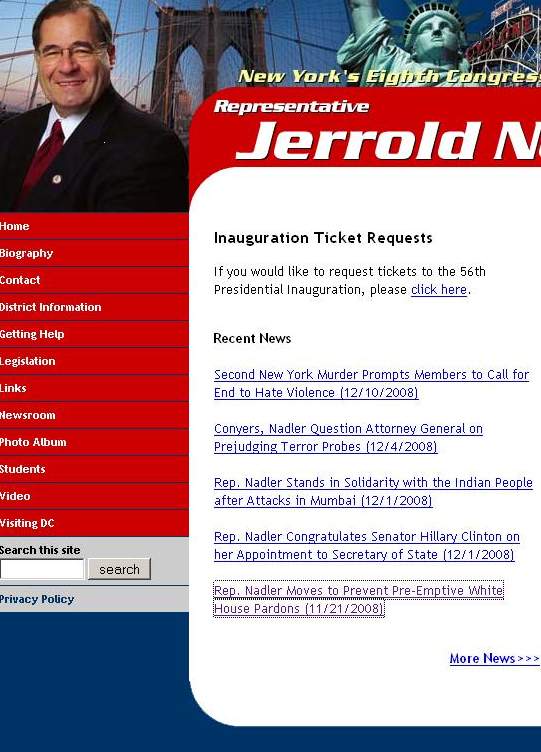
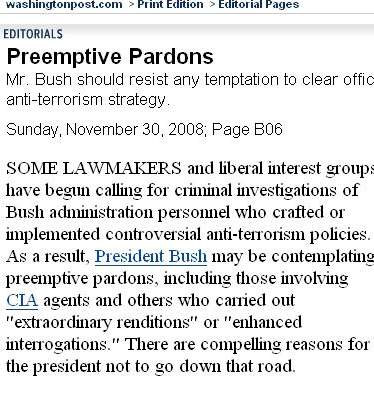
Legislation To Stop Preemptive Pardons
So far George W Bush has issued nearly 170 pardons, they include a Missouri farmer who unintentionally poisoned three bald eagles. Pardons give the recipients greater leeway to find jobs, live in public housing and vote. Many expect that President Bush will pardon himself and other high officials as a shelter from criminal charges and that’s what New York Congressman Jerrold Nadler is trying to prevent. Nadler is the Chair of the Judiciary Subcommittee on the Constitution, Civil Rights, and Civil Liberties, and he’s recently introduced House Resolution 1531 demanding that Bush refrain from issuing pre_emptive pardons of senior officials in his Administration during the final 90 days of office.
New York Congressman Jerrold Nadler:
- No pre-emptive pardons, the president should not do it, it’s a dangerous abuse of pardon power.
- HR 1531 also says that we believe an attorney general should appoint an independent counsel to investigate alleged various crimes, such as warrantless wiretapping, torture, renditions and so forth committed during the Bush administration.
- Premptive Pardons: President Ford pardoned Nixon, for any crimes that he might have committed.
- President H W Bush pardoned Casper Weinberger and various other people for any crimes they might have made. President Carter pardoned anyone who violated the draft laws in evading the draft during the Vietnam War.
- My feeling is the reason for pardons or give the pardon power in the first place is you want to temper justice with mercy.
- It would be an abuse of power before they get convicted of a crime. If he pardoned all the people well, then how do you develop a case.
- I think there should be a commission with supoena power, that can get at the facts, that can have people testify, that can develop more information for prosecutors to use.
- Right now the narrative will be: Nobody did anything wrong, we protected the American people from terrorism.
- We need to educate the American people about why these prosecutions must be done.
- It’s very important for the people in a democratic country to know what was done in their name.
- One of the problems we have in this country today is that everything is secret.
- The resolution will not be passed in this Congress. If Bush exercises pardons, then there’s very little we can do about those pardons. I’m going to introduce a constitutional amendment to restrict the pardon power in the future.
Guest – Congressman Jerrold Nadler – He represents New York’s Eighth Congressional district. The Eighth, one of the most diverse districts in the nation, includes Manhattan’s West Side below 89th Street, Lower Manhattan, and areas of Brooklyn including Borough Park, Coney Island, Brighton Beach, Sea Gate, Bay Ridge, and Bensonhurst.
—
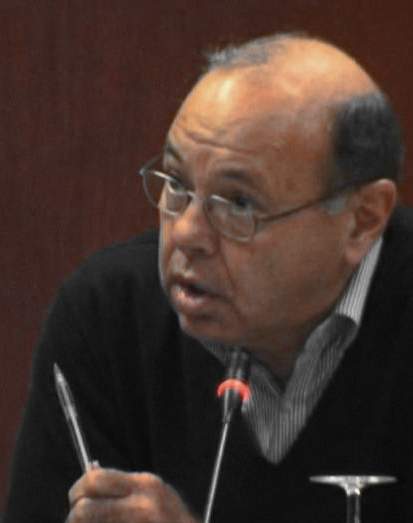
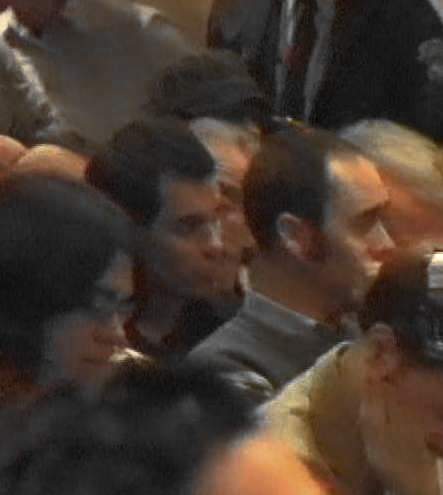
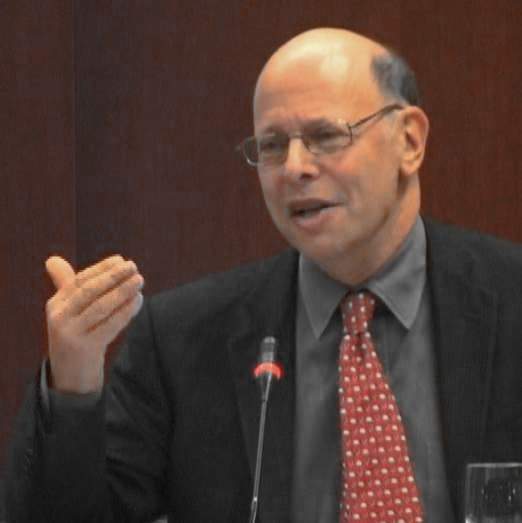
Harpers Magazine Panel: Justice After Bush: Prosecuting an Outlaw Administration
We hear from our own Michael Ratner President, Center for Constitutional Rights. The event discussed methods available to a democracy to prosecute high officials in the Bush Administration and responded to Scott Horton’s Harper’s Magazine cover story called “Justice After Bush: Prosecuting an Outlaw Administration.”
- Elizabeth Holtzman, Author, The Impeachment of George W. Bush
- Scott Horton, Contributing Editor, Harper’s Magazine
- Jerrold Nadler, Chairman, House Subcommittee on the Constitution
- Antonio Taguba, Major General (U.S. Army Ret.)
—————————————————————————————-
Civil Liberties, Human Rights, Prosecution of the Bush Administration, Torture, Truth to Power
Podcast: Play in new window | Download
Host Updates:
———

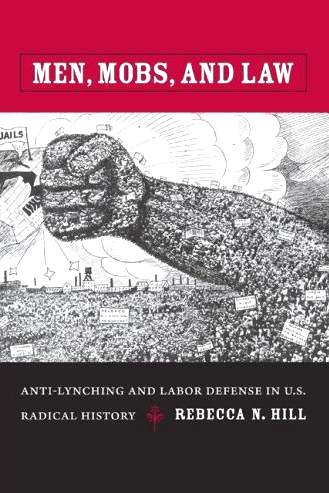

Men, Mobs and Law by Rebecca Hill
Men Mobs and Law is the title of Rebecca Hill’s new book that explores the complexities of protest movements, race, class and gender. Hill draws comparisons in two types of left protest campaigns, those that defend labor organizers from prosecution and the anti-lynching groups that seek to memorialize lynching victims. Hill says, both groups have influenced each other throughout history and she specifically connects the narratives and stories of the NAACP’s anti lynching work to the IWW’s labor defense campaigns.
Rebecca Hill’s treatment of these dramatic stories has been called “fresh, lively, richly detailed, and impassioned.”
Rebecca Hill:
- When I first started the book it was about martyrdom and the American Left and heroic politics. I’ll take these particular cases, John Brown, Haymarket etc.
- In the research I found that this other problem that there is no law enforcement and the source of terror that black activists were dealing with was extra-legal. . . . and their anti-lynching activism that started in the 60s – and I then went back to Ida B Wells, Dubois – 1887-1890s
- Ida B Wells talking about how dangerous passion is. This is a problem in leftest activism in general. It goes to the big questions of political theory and rationale, the role of emotions, questions of what is the meaning of popular action,
- I didn’t want to condemn either side, the anti lynching movement strategy or and the socialist left defense organizing, because they both came out of experiences that informed their politics.
- If you’re facing terroristic mobs, you’re going to respond with a strategy. The anarchists and socialists movement response spoke to the lynching and their response was in inadequate – “rise up in self defense.”
- If you lived in the post reconstructive South, rising up in self defense was not realistic without legal protection.
- What came out of the Haymarket movement in the 1880s was the idea that the key element of solidarity in a labor movement is when somebody is arrested, or victimized as a result of organizing, its the membership that can save them. Not the law. The law is a tool, it’s not enough perhaps.
- The courts are structured by the ruling class, they’re stacked against the worker who is in court. They didn’t want the court room take away from the radicalism of the movement.
- Elizabeth Gurley Flynn – defense expert in IWW trials and Sacco Vanzetti case. Anarchists connected to Sacho and Vanzetti case didn’t want structure and organizing
- I was very active in the Mumia Abu Jamal campaign, you see the greater successes in the popular defense organizing it’s not based on the legal strategy, its when is the movement stronger. You see more victories in the thirties because the labor movement was big and the consensus was moving to the left during the New Deal
- John Brown’s defense is close to the fugitive slave rescues which were anti-court . John Brown’s notion that the courts are wrong and should answer to a higher power, not the current law of slavery. John Brown attempted to make available weapons for slaves to take up arms. See the book John Brown Mysteries
- I don’t really think of John Brown as a religious zealot, I think he really believed in popular organizing and popular activism.
Guest – Rebecca Hill, author of Men Mobs and Law.
———————-


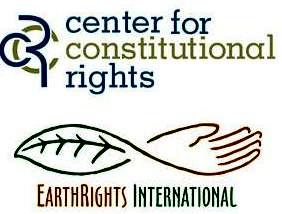
Wiwa et al v. Royal Dutch Petroleum et al Royal Dutch Shell Case – CCR
Europe’s largest oil company Royal Dutch Shell faces a lawsuit in a case originally filed by the Center for Constitutional Rights in November 1996. US District Judge Kimba Wood refused to throw out the case late last month, and the Shell Oil Company faces trial brought by relatives of human rights and environmental activists killed in Nigeria. The activists were protesting oil production pollution such as water contamination and agricultural destruction. The lawsuits are brought against the Royal Dutch Petroleum Company and Shell Transport and Trading Company (Royal Dutch/Shell); the head of its Nigerian operation, Brian Anderson; and the Nigerian subsidiary itself, Shell Petroleum Development Company (SPDC).
The defendants are charged with complicity in human rights abuses against the Ogoni people in Nigeria. Charges include summary execution, crimes against humanity, torture, inhumane treatment, arbitrary arrest, wrongful death, assault and battery, and infliction of emotional distress. The trial begins May 26 of this year.
Jennie Green, a lawyer with the Center for Constitutional Rights, which represents the plaintiffs, said in a statement. (quote) “Now, the public will have the opportunity to see how Shell’s complicity with a murderous military regime was its standard operating procedure for doing business in Nigeria.”
Attorney Jennie Green:
- The case is about the concerted attacks on people organizing in the Niger Delta against the environmental devastation and human rights violations committed by the partnership of the Nigerian military and Royal Dutch Shell.
- The Shell Corporation based in the Hague and England.
- We sued them for human rights violations against the leadership of the movement for the survival of the Ogoni people.
- There was a campaign against Ken Saro-Wiwa and other leaders who were charging Shell publicly, coordinating a very effective movement against Shell.
- 300 thousand people peacefully demonstrating against Shell
- They were calling attention to the fact that Shell’s practices in Nigeria involve constant flaring, the flaring of gas products, lasting up to 24 hours a day. Some of kids in the region have never known dark.
- It’s an area based on fishing and farming – polluted water supply and land has devasted their way of life.
- Ken Saro-Wiwa developed a very effective campaign, building international alliances, Shell and the Nigerian military went after them, using torture, imprisonment etc.
- Ken Saro-Wiwa was a very effective writer, producer, poet and environmentalist.
- This started in the 1990’s when the Ogoni people declared in a campaign that Shell (in the area since 1958) could no longer go on exploiting the natural resources of the Delta without some accountability to the Ogoni people.
- As the peaceful campaign escalated, so did the pattern of repression.
- Ken Saro-Wiwa was falsely accused of murdering 4 Orgoni leaders. A military tribunal was created that did not meet any due process standards. In 1995 the Orgoni 9 were executed, hung, including Ken Saro-Wiwa.
- A month later Shell installed a 4 billion dollar liquified natural gas project.
- What we’ve charged Shell with is, complicity with these acts. They subdued protests, they bribed witnesses at the trial,
- Shell claims to be environmentally conscious but this is a classic double standard, their practices in the west are very different from Nigeria.
- The judge rejected Shell’s push to dismiss the international law claims, charging Shell with crimes against humanity and extrajudicial killings. Ken Saro-Wiwa did not start out thinking Shell was the enemy, they wanted better business practices could develop and benefit the Ogoni people.
- Shell has approached this in a way to evade all accountability and maximize impunity. They spent 4 years fighting us over whether can be tried here in New York. Where we are is . . . that they need a judge and jury to tell them that they are accountable for human rights violations.
Guest – Jennifer Green, lawyer with the Center for Constitutional Rights, which represents the plaintiffs. Jennifer Green specializes in international human rights legal actions in U.S. courts and international bodies. She has represented plaintiffs in successful lawsuits against the Unocal corporation for forced labor in Burma, and against Bosnian Serb leader Radovan Karadzic, former Guatemalan Minister of Defense Hector Gramajo, Indonesian military official Sintong Panjaitan, Ethiopian police official Kelbessa Negewo, and former Haitian dictator Prosper Avril for rape and other acts of genocide and war crimes.
—————————————————————————————————–
Censorship, Criminalizing Dissent, FBI Intrusion, Habeas Corpus, Human Rights, Impeachment, Iraq War, Prosecution of the Bush Administration, Supreme Court, Surveillance, Targeting Muslims, Truth to Power
Podcast: Play in new window | Download
Host Updates:
—
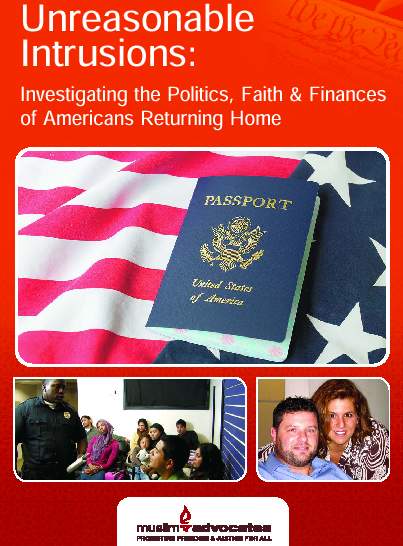
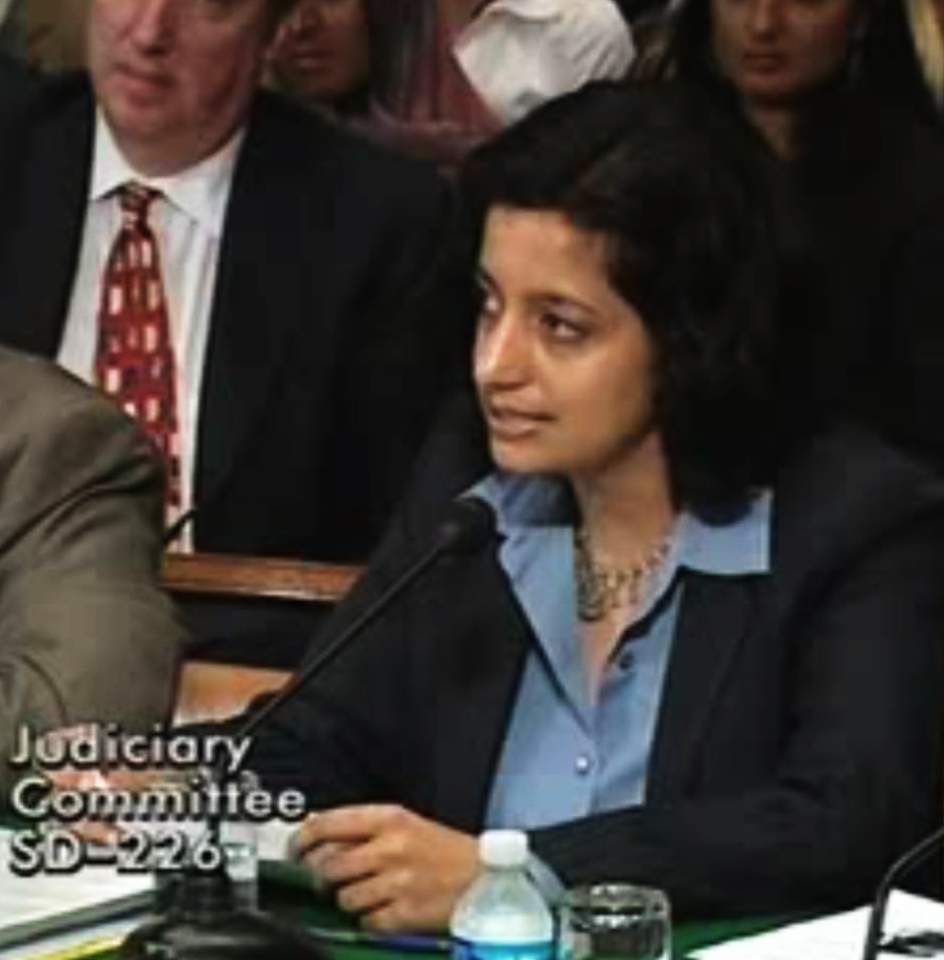
Unreasonable Intrusions Report
Last month, the Muslim Advocates released a report titled Unreasonable Intrusions: Investigating the Politics, Faith & Finances of Americans Returning Home. The report documents the systematic and widespread practice of federal agents interrogating Americans returning home after overseas travel at our nation’s borders and international airports. Muslim Advocates, a sister group with the National Association of Muslim Lawyers (NAML), which is a group of approximately 500 Muslim lawyers, law students and other legal professionals.
Farhana Khera:
- These are folks who are returning home from travel and they’re being stopped at borders, land crossings.
- After showing valid US passports, federal agents are engaging in very invasive questioning and searches of these Americans.
- Muslim or those Americans who may look Muslim.
- The questions (from border agents) go into first amendment protected areas. What mosque do you attend? How often do you pray?
- We want to educate federal policy makers, members of Congress, Homeland Security and the Obama Administration about this practice.
- Laptops, cameras and phones searched, in some cases asking about people in images, and how they particular individuals.
- Again, all of this without any evidence or suspicion.
- Ninth Circuit Decision US v Arnold, pretty much gives blanket authority to federal agents at the border to search laptops and electronic devices of law abiding Americans.
- We really need some standards in place that address the need of probable cause and reasonable suspicion before seizing personal data.
- We believe that Americans have the right to enter the country and not be compelled to answer questions, particularly about first amendment protected beliefs.
- We are giving practical advice in saying that you think this line of questioning is inappropriate. Get badge #’s of officers who have your stuff, then file a complaint.
- Traveler’s Privacy Protection Act – Proposed Legislation, to be re-introduced.
Guest – Farhana Khera, first Executive Director of Muslim Advocates and the National Association of Muslim Lawyers (NAML). Prior to joining Muslim Advocates and NAML in 2005, Ms. Khera was Counsel to the U.S. Senate Judiciary Committee, Subcommittee on the Constitution, Civil Rights, and Property Rights. In the Senate, she worked for six years directly for Senator Russell D. Feingold (D_WI), the Chairman of the Constitution Subcommittee. Ms. Khera focused substantially on the USA PATRIOT Act, racial and religious profiling, and other civil liberties issues raised by the government’s anti_terrorism policies since September 11, 2001. She was the Senator’s lead staff member in developing anti_racial profiling legislation and organizing subcommittee hearings on racial profiling.
—-
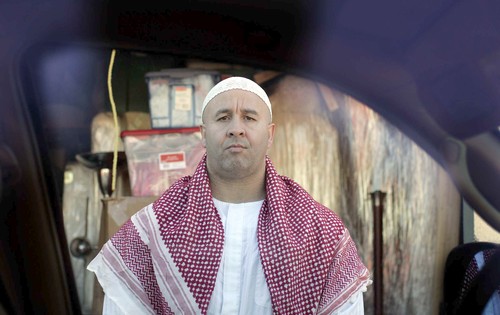
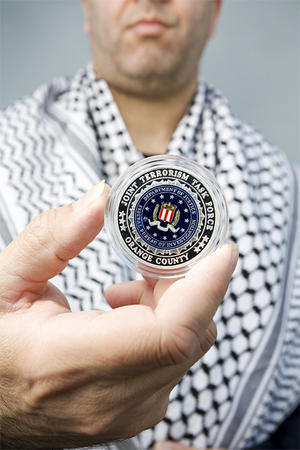
FBI Exposed: Federal Judge Orders FBI to Provide Full Muslim Surveillance Records
Last week a federal judge ordered the FBI to submit 100 documents detailing the bureau’s surveillance of Muslim leaders and organizations in Southern California and specifically, documents relating to the Council on American_Islamic Relations of Greater Los Angeles and its executive director. The court’s decision came in response to a 2007 lawsuit filed by the ACLU of Southern California that claimed the government’s incomplete and long_delayed response violated the Freedom of Information Act.
An attorney with the ACLU of Southern California says the surveillance records will show how the FBI infiltrated Southern California mosques and invasively monitored members of the Muslim community as if they were criminals.
“Truth can never be redacted. Only full disclosure will satisfy us and alleviate the pervasive fear in our communities and congregations,” said Shakeel Syed, executive director of the Islamic Shura Council of Southern California, who joins us today.
Shakeel Syed:
- It was confirmed in a court of law, under oath, that the FBI had employed informants, in one case, the informant was a former convicted felon.
- Craig Monteilh has multiple identities, he was given a different by the FBI and sent into one of the mosques.
- He embraced Islam proclaiming that he wanted to become Muslim and wanted to make his faith public.
- He abused the Islamic platform to gain trust in the community. The FBI told him the best way for you to infiltrate is to become Muslim and pretend to be a slow learner.
- The people at the mosque were alarmed when Craig Montel was encouraging others to blow up buildings in LA
- They called the FBI office on Craig Monteilh unaware that he was an informant. They brushed the report aside.
- Radiation monitoring of mosques
- We filed a FOIA request jointly not individually, which was good because what was suspected is now fully confirmed in the court of law that informants were paid as provocateurs in the area.
- In 2006, one of our members of the mosque, a student, ambushed an agent that was following him and he was apprehended by the University of Irvine campus police. We later filed a case against this individual and later never heard back from the campus police or the FBI.
- We received similar reports in our conversations with other community leaders in other areas such as Chicago, New York, Dallas, Detroit, Houston, Atlanta, Miami, San Francisco.
- It was revealed in some of the FBI surveillance documents that my private speeches were mentioned that were against the war in Iraq. Dalia Hashad – “They were in the mosque.”
- We continue to receive reports from the community on an almost ongoing basis from within the regions of Southern CA that the FBI has approached them to become informants, threatened them, intimidated them, offered them convenience of getting their naturalization papers expedited or immigration papers duly adjusted.
- I’m disgusted, but more emboldened to stand up and assert my rights.
Guest – Shakeel Syed, executive director of the Islamic Shura Council of Southern California.
———————————————————————————-

































